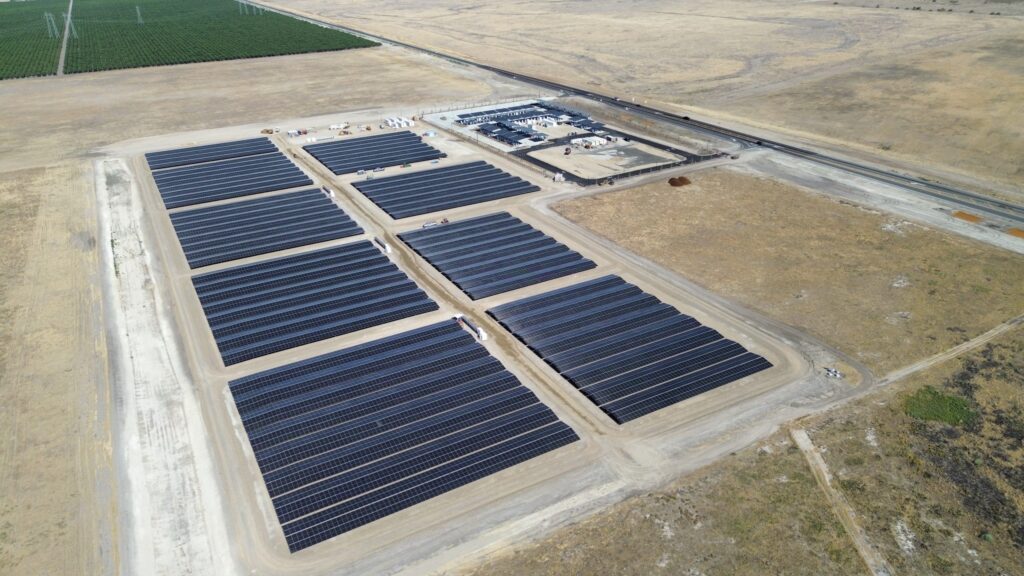Tesla has officially launched its most ambitious charging station to date—the Oasis Supercharger—in Lost Hills, California. This new facility integrates solar energy and battery storage to offer a completely off-grid EV charging solution.
The Oasis Supercharger is a massive charging station that is designed to provide sustainable and reliable charging for Tesla vehicles. The station is equipped with solar panels that harness the power of the sun to generate electricity. This renewable energy source helps reduce the station’s reliance on the grid, making it more environmentally friendly.
In addition to solar energy, the Oasis Supercharger also features battery storage technology. This allows excess energy generated by the solar panels to be stored for later use, ensuring that the station can continue to operate even during periods of low sunlight. The battery storage system also helps to stabilize the grid and reduce peak demand, making the charging station more efficient and cost-effective.
The off-grid design of the Oasis Supercharger is a significant step forward in Tesla’s commitment to sustainability and innovation. By harnessing renewable energy sources and implementing cutting-edge technology, Tesla is leading the way in the transition to a cleaner and more sustainable energy future.
The Oasis Supercharger is not only environmentally friendly but also offers a convenient and reliable charging solution for Tesla owners. The station is equipped with multiple charging stalls, allowing multiple vehicles to charge simultaneously. This helps reduce wait times and ensures that Tesla owners can quickly and easily charge their vehicles while on the go.
Overall, the Oasis Supercharger represents a significant milestone in Tesla’s mission to accelerate the world’s transition to sustainable energy. With its off-grid design, solar energy integration, and battery storage technology, the station sets a new standard for EV charging infrastructure. As Tesla continues to expand its Supercharger network, facilities like the Oasis Supercharger will play a crucial role in supporting the widespread adoption of electric vehicles. Tesla has recently unveiled a groundbreaking new Supercharger station known as the ‘Oasis’ that operates completely off-grid. This innovative charging station is equipped with solar panels and battery storage, making it a sustainable and eco-friendly solution for electric vehicle owners.
Located in a remote area, the Tesla Oasis Supercharger is designed to provide reliable and efficient charging capabilities without relying on the traditional power grid. The station is powered by a combination of solar energy captured by the solar panels and stored in the battery storage system. This setup ensures that the Supercharger can operate independently of the grid, even in areas where access to electricity is limited.
The Tesla Oasis Supercharger offers a convenient and environmentally friendly solution for electric vehicle owners who are looking to charge their vehicles on the go. The station is equipped with multiple charging stalls to accommodate a high volume of vehicles, allowing drivers to quickly recharge their batteries and continue on their journey.
In addition to its off-grid capabilities, the Tesla Oasis Supercharger is also designed with sustainability in mind. The station is built using eco-friendly materials and features a modern and sleek design that blends seamlessly into its natural surroundings. This commitment to sustainability is reflective of Tesla’s overall mission to reduce the environmental impact of transportation and promote the widespread adoption of electric vehicles.
Overall, the Tesla Oasis Supercharger represents a significant step forward in the development of sustainable charging infrastructure for electric vehicles. By harnessing the power of the sun and storing energy in batteries, Tesla is paving the way for a future where clean and renewable energy sources are the norm. Electric vehicle owners can now enjoy the convenience of fast and reliable charging while also reducing their carbon footprint.

